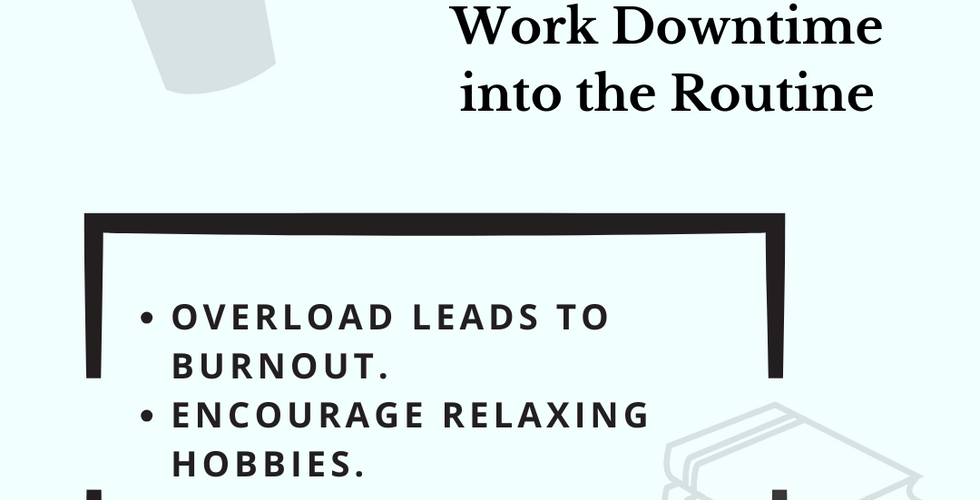From Summer Chaos to School-Year Success: How to Help Teens Thrive With Structure and Routine
- Mini Sprout

- Aug 26, 2025
- 4 min read

The shift from summer break to the school year isn’t just about dusting off backpacks—it’s a full reset for the entire household. While some teens embrace the return to familiar Experienced parents know otherwise.
Even though teenagers are edging toward adulthood, they still benefit greatly from guidance, boundaries, and consistent structure—especially when they’re navigating mental health challenges or facing a heightened risk for them.
Clear routines do more than just keep the household running smoothly—they provide teens with stability, predictability, and a sense of safety. That daily framework supports better sleep, regular mealtimes, and stronger family connections. It also equips teens to cope with life’s curveballs—whether it’s a personal setback or a troubling event in the news.

Why Routines Are a Game-Changer for Teens
Summer often erases any semblance of regularity. Teens may stay up until 2 a.m., sleep past noon, graze on snacks at odd hours, and forget what homework even looks like. While this flexibility can be harmless in short bursts, it’s a recipe for chaos once the academic year begins.
A predictable schedule gives teens and parents a sense of control and helps everyone transition more smoothly into the school year. For teens wrestling with anxiety, depression, autism, or other cognitive and emotional challenges, the consistency of a daily plan can dramatically reduce stress and improve focus.
Just as importantly, learning to stick to a schedule now lays the groundwork for success in college, the workplace, and beyond.

8 Proven Strategies to Smooth the Back-to-School Transition
1. Map Out the Day—Then Share It
Most teens aren’t born time-management pros—it’s a skill still under construction in their developing brains. Work together to outline a realistic daily schedule that includes school hours, after-school activities, homework blocks, meals, chores, and downtime. Display it somewhere visible, whether on the fridge, a bedroom wall, or a shared online calendar.
But remember: overstuffed schedules can backfire. Encourage balance by helping teens prioritize and drop nonessential commitments.
2. Lock in Sleep Schedules Early
Teenagers need 8–10 hours of sleep, yet most fall short—sometimes by several hours. A week or two before school starts, begin shifting bedtimes and wake-up times in small increments to avoid a jarring first day. Adequate rest fuels mood stability, concentration, and academic performance.
3. Power Down Before Bed
Blue light from phones, tablets, and laptops can suppress melatonin production by up to 22%, making it harder to fall asleep. Create a tech-free wind-down period at least one hour before bed. Parents can model the same behavior, showing teens that screen-free evenings benefit the whole family.
4. Protect Family Meal Time
Shared meals build connection and resilience. Research shows they lower stress, reduce the risk of risky behaviors, and even boost academic success. While nightly family dinners might not always be possible, making them a regular priority pays off—especially when phones are put away.
5. Schedule Downtime
Teens often lead high-intensity lives filled with schoolwork, sports, jobs, and extracurriculars. But everyone—especially adolescents—needs moments to decompress. Even an hour of unstructured time to read, journal, listen to music, or simply relax can improve emotional balance.
6. Keep Them Moving
Exercise is a proven mood booster, stress reliever, and sleep enhancer. Whether it’s sports, swimming, biking, or dance, aim for vigorous activity at least three times a week. Teens who are less naturally active may need gentle encouragement to find an activity they enjoy.
7. Help Them Get Organized
Organization isn’t just about keeping a tidy desk—it’s a skill that influences academic performance, stress levels, and even mental health. Teach teens how to break down tasks, use planners or checklists, and maintain a clean personal space. If needed, consider tutors or academic coaches for extra support.
8. Practice Gratitude Together
A simple gratitude jar can transform family culture. Each day, everyone writes down something they’re thankful for, big or small, and drops it into the jar. Reading them together later reinforces positive thinking and builds resilience—skills teens will carry for life.
When Extra Support Is Needed
Even the best routines can’t solve every challenge. If your teen shows signs like declining grades, persistent irritability, disrupted sleep, or physical complaints without clear cause, it may be time to seek extra help—whether from a counselor, therapist, or support group.
Helping Teens Build Skills for Life
The back-to-school transition is more than just a calendar change—it’s an opportunity to reinforce resilience, life skills, and emotional strength. Structure doesn’t just prepare teens for academic demands; it sets them up to face the future with confidence.

That’s why Tiny Sprouts’ Empower Empathy™ is designed to help young people thrive. Through engaging activities and evidence-based strategies, our toolkit builds resilience while teaching social skills, emotional awareness, and healthy coping mechanisms. Teens strengthen executive functioning, close proficiency gaps, and develop the mindset to excel not only in high school but in life. Adolescents who receive compassionate, effective support emerge with self-knowledge, self-worth, and the tools to navigate any challenge ahead.

#BackToSchoolTips #TeenMentalHealth #ParentingTeens #ExecutiveFunctioning #ResilientTeens #SocialSkillsForTeens #EmotionalWellness #TeenLifeSkills #MindfulParenting #SchoolReady #PositiveParenting #FamilyConnection #StressFreeSchoolYear #SELforTeens #AcademicSuccess #HealthyHabitsForTeens #BuildingResilience #TeenSupport #CopingSkillsForTeens #SelfEmpowerment #ParentingTools #EmotionalAwareness #TeenWellbeing #GrowthMindset #LifeSkillsForTeens #MentalWellnessMatters #SelfWorthForTeens #ParentingTips #EmpowerEmpathy #ThrivingTeens
























Comments